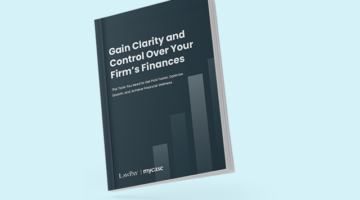 Many attorneys periodically find themselves in situations where they need to consult a valuation expert as part of a business matter. In these situations, valuation experts typically employ one of three methods to determine the value of a business: a replacement cost method, an income approach, and a comparable sales method.
Many attorneys periodically find themselves in situations where they need to consult a valuation expert as part of a business matter. In these situations, valuation experts typically employ one of three methods to determine the value of a business: a replacement cost method, an income approach, and a comparable sales method.
Unfortunately, all three of these methods have their drawbacks. Replacement cost is often extremely difficult to estimate without detailed bids from multiple sets of contractors. Income approaches rely on an uncertain estimate for cost of capital, and comparable sales methods rely on finding recently sold properties that truly are comparable to the asset in question.
Against this backdrop, it’s little wonder that attorneys are often forced to spend significant amounts of time arguing over valuation in court or in negotiations. Yet there is an alternative. It is called hedonic pricing.

Best Practices In Trust Accounting: What Every Lawyer Needs To Know
Learn legal trust accounting best practices to ensure compliance and protect client funds. Discover expert tips to set your firm up for success.
Hedonic pricing is a regression based valuation method which takes into account factors unique to a particular business or asset and produces a valuation estimate. What’s more, hedonic pricing is also useful for predicting how valuation would change under slightly different circumstances — for instance, what would be the effect on valuation of a business had an unfair trade practice not occurred, or the effect on valuation if the Fed raises interest rates.
Hedonic pricing has these significant advantages because it is a big data statistical technique. As an empirical method, hedonic pricing also offers another significant advantage over alternative techniques — it tells us how accurate it is. Hedonic pricing gives not only a specific estimate for valuation, but it also gives a range of values that we can literally be 99.6% certain that the true value of the business falls into. All valuation methods are subject to some amount of error, but only hedonic pricing acknowledges that error and offers a probability based range of how far off the initial valuation estimate could be.
Given all of these advantages, one might ask why hedonic pricing is not used more often. The answer is that the technique is more complex and more time consuming to calculate than other alternatives. While a discounted cash flow model for an income approach or a comparable sales estimate can be constructed in an hour or two, hedonic pricing requires gathering data and then building a statistical model. That process can take several days in some cases.
In addition, because the methodology for hedonic pricing relies on significant statistical analysis, it’s a practice that most business appraisers simply are unable to do. The skillset involved in hedonic pricing is more common to economists and data scientists than it is to the average appraiser. As a high value service though, hedonic pricing is certainly a tool that more appraisers would benefit from understanding.

Take Control Of Your Firm’s Finances With Tools Built For Success
Position your firm for long-term growth with better financial visibility and control. Learn how to track performance, manage spending, and plan strategically—download the full e-book now.
Given the costs and time involved in it, hedonic pricing is best used in larger and more complex cases and negotiations where the value of an asset or business is significant, and the outcome of the case may turn on the estimate that is produced. Nonetheless, for the attorney who needs to offer their client an innovative and more accurate business valuation technique, there is no better choice than hedonic pricing.
Michael McDonald is an assistant professor of finance at Fairfield University in Connecticut. He holds a PhD in finance. Michael consults extensively with organizations ranging from Fortune 500 companies to start-up businesses on financial matters through Morning Investments Consulting. Michael has served as an expert witness in legal disputes, and is an arbitrator with the Financial Industry National Regulatory Authority (FINRA). Michael can be reached at [email protected].